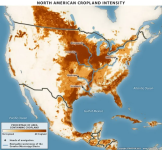JesterBL
Gastronaut
- Location
- Flyover Country, USA
- Pronouns
- he/him
The guy who got suckered into a clearly ludicrous plot and then was hung out to dry by his foreign sponsors once he was no longer useful to them and was subsequently hanged as an example to discourage future foreign interventions being a competent and insightful leader is just a bit of a stretch for me*. He can have all the supposedly good intentions in the world, he will still be a foreign invader installed and maintained by force.Maximilian is a weird figure whose preferred policies were largely the same as Juarez's, he resisted French demands at points, and the French lose influence over the country within a decade of entering it in my speculation because Napoleon II will still be ousted from power after the Franco-Prussian war.
Franz Joseph II broke with Maximilian OTL and removed the latter from his position of Viceroy of Lombardy-Venetia because Maximilian wasn't reactionary; and Cavour was relieved when he heard Maximilian was removed from his position in Italy since Cavour viewed Maximilian's good governance and liberalism as a hindrance against the cause of Italian unification.
I'm gonna emphasize that Maximilian was suckered into being Emperor of Mexico. He conditioned his acceptance on the Mexican people actually wanting him, and he was presented with phony plebiscite results. He was invited by reactionaries, and ironically had something close to the opposite of his politics. I don't see why arguing that a government that hews closer to Juarez's policies than to the OTL Porfiriato is close to apologism.
*especially when the scenario would involve a Mexico which had lost even more territory and suffered an even greater humiliation and defeat (and a US that would likely be more involved).


